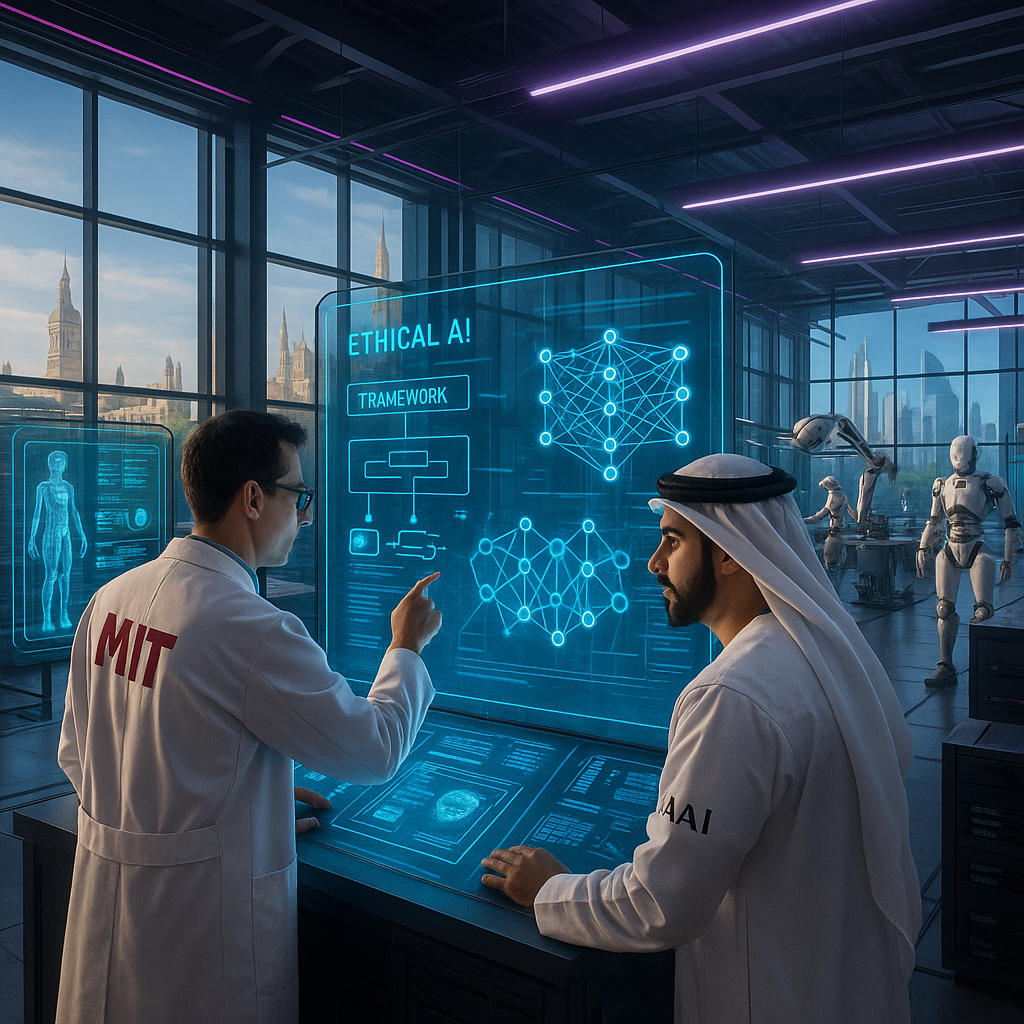Key Takeaways
- Academic AI heavyweights unite: The Massachusetts Institute of Technology and Mohamed bin Zayed University of Artificial Intelligence have launched a joint initiative focused on responsible AI development.
- UAE builds new bridges: This collaboration positions the UAE as a global intermediary for AI research, especially where US or European influence faces political or regulatory limits.
- Rethinking responsible intelligence: Both institutions seek to embed ethical principles and cultural context into the foundation of next-generation AI systems, not merely create smarter algorithms.
- Shifting global dynamics: The partnership suggests a realignment in steering the intelligence revolution, broadening influence beyond traditional Western leadership.
- Next step: joint research agenda: Detailed project plans and community engagement strategies are expected in the coming months, potentially setting new models for intellectual cooperation.
Introduction
The Massachusetts Institute of Technology and Mohamed bin Zayed University of Artificial Intelligence have launched a landmark alliance in Abu Dhabi this week, aiming to reshape global discourse on responsible AI. By integrating ethics and cultural nuance into advanced AI systems, this partnership positions the UAE as an unexpected mediator between Western innovation and a broader world seeking more inclusive stewardship of emerging intelligence.
The Alliance: A New Center of Gravity for Responsible AI
The Mohamed bin Zayed University of Artificial Intelligence (MBZUAI) and MIT’s Schwarzman College of Computing have formed a pioneering research partnership centered on ethical AI development. Announced at a ceremony in Abu Dhabi, the collaboration will focus initially on three areas: healthcare applications, robotics systems, and computational efficiency.
Professor Eric Xing, President of MBZUAI, highlighted the transformative potential of this alliance. He stated that by merging MIT’s expertise with MBZUAI’s strategic position and resources, the initiative creates a unique ecosystem for responsible AI innovation that spans continents and cultures.
The partnership will include joint research laboratories, faculty and student exchanges, and new frameworks for ethical AI governance. Professor Daniela Rus of MIT underscored the value of diverse perspectives in AI, noting that responsible development requires a global dialogue beyond traditional academic boundaries.
Stay Sharp. Stay Ahead.
Join our Telegram Channel for exclusive content, real insights,
engage with us and other members and get access to
insider updates, early news and top insights.
 Join the Channel
Join the Channel
Bridging Cultures Through Technology
This collaboration serves as more than a research partnership. It functions as a cultural and intellectual bridge connecting Western and Middle Eastern approaches to AI. Researchers from both institutions will collaborate on projects that blend MIT’s technical strengths with MBZUAI’s insights into AI applications across varied global contexts.
A dedicated ethics board will guide the initiative, comprising scholars from both institutions and international experts in philosophy, law, and social science. This multidisciplinary approach ensures ethical issues remain integral to technical research.
Research teams will develop AI systems that honor local cultural values while upholding universal ethical standards. Dr. Sarah Thompson, head of MIT’s AI Ethics Initiative, explained that the focus is on creating frameworks for responsible innovation adaptable to different cultural environments.
A Framework for Responsible Innovation
The collaboration has established a three-tiered approach to responsible AI development. At the base lies transparent research methodology. All findings and processes will be made publicly accessible through an online platform.
The second tier emphasizes practical implementation. Researchers will develop tools and guidelines enabling ethical considerations to be integrated directly into AI system design, including new methods for bias detection and mitigation in machine learning.
The final tier addresses governance and oversight, setting up mechanisms for ongoing evaluation of AI systems’ societal impact. Dr. Ahmed Al Mansouri, MBZUAI’s Director of Research Ethics, described this as creating a living laboratory for responsible AI development.
Looking Beyond Traditional Boundaries
The partnership is designed to spur global dialogue on AI ethics, reaching beyond typical academic collaboration. Regular symposiums, workshops, and public forums will bring together voices from academia, industry, and civil society.
Both institutions have committed to developing AI solutions for global challenges, especially in healthcare and environmental sustainability. The research agenda features projects on AI-driven medical diagnosis systems that respect patient privacy and cultural norms.
Further, the collaboration emphasizes capacity building in emerging markets. Plans include establishing satellite research hubs in regions traditionally underrepresented in AI development. This network aims to facilitate knowledge transfer and ensure AI solutions remain accessible and relevant to varied communities.
Conclusion
The MBZUAI–MIT partnership signals a significant evolution in the way global AI alliances can intertwine ethics, cultural context, and transparency from the outset. By rooting responsible AI in both routine practice and rigorous scholarship, the initiative offers a blueprint for uniting technological progress with social responsibility. What to watch: the rollout of public research platforms and upcoming global forums will indicate how these frameworks are implemented in practice.





Leave a Reply